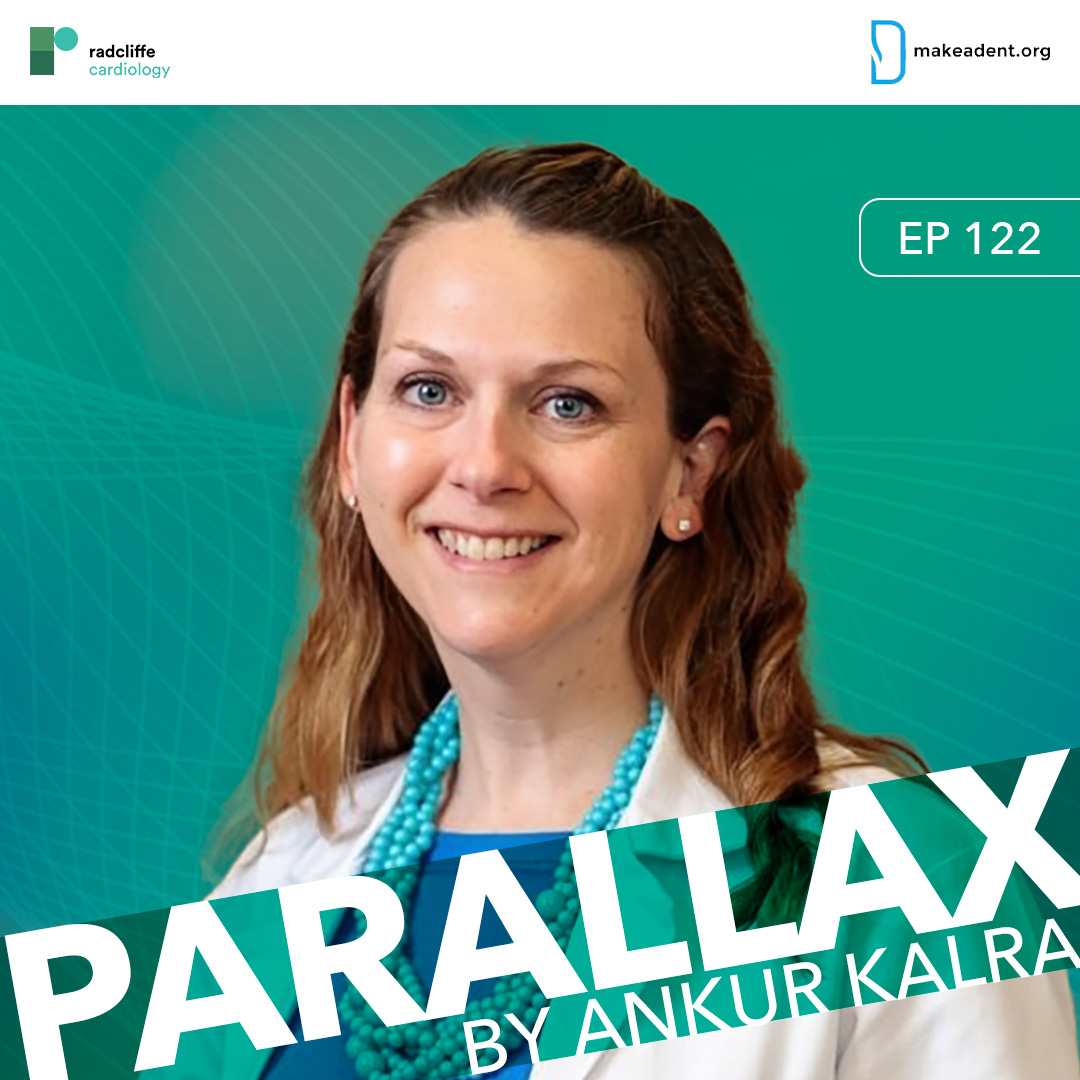
In this thought-provoking episode of Parallax, Host, Dr Ankur Kalra engages in an illuminating conversation with Dr Karen Joynt Maddox, a distinguished cardiologist and health policy researcher at Washington University School of Medicine in St. Louis. Together, they navigate the complex intersection of cardiovascular medicine, health economics, and public health policy.
Dr Joynt Maddox shares her unique journey into health economics research, offering valuable insights for cardiologists considering this vital career path. The discussion delves deep into the need for enhanced collaboration between clinicians and policymakers, emphasizing how physicians' frontline experiences can inform more effective healthcare policies.
In examining the growing presence of private equity in cardiology practices, Dr Joynt Maddox provides nuanced insights into this transformative trend. Through thoughtful analysis, she explores how this financial model shapes healthcare delivery, innovation, and patient outcomes. The conversation extends to broader economic challenges in cardiovascular medicine, particularly the intricate balance between fostering medical innovation and ensuring accessible, affordable care for patients.
Drawing from her extensive research experience, Dr Joynt Maddox emphasizes the role of social determinants in cardiovascular health outcomes. The episode concludes with a compelling discussion on integrating public health principles into medical education, offering a vision for a more holistic approach to cardiovascular care.




What is the Global Cardiology University project? How does Dr Anavekar encourage trainees to re-examine their role in patient care? What is his advice to our listeners?

As Dr Kalra asks Dr Rao about the ways in which early career faculty members can get involved with the organization at a state level. Dr Rao shares his insider tips and highlights key events where individuals can further their participation.
How can you get involved with your local ACC chapter? How can you improve your leadership skills? What is Dr Rao’s advice for our listeners?

He explains how the complexity of nutrition and the compounds generated by the gut microbiome can impact our health. We learn more about three compounds produced by our gut microbiome that have a strong connection with heart disease.
Through this conversation, Dr Vuyisich invites us to reframe our approach to nutrition and prevention as a question of food education and data-driven science.


This episode features a vascular neurologist and an interventional cardiologist who will discuss the relationship between their two fields of medicine.

In this rich and insightful discussion, Dr Kittleson talks about the origins of famous #kittlesonrules, a collection of tips for doctors shared on Twitter, and her thoughts on mentorship. We learn more about Mastering the Art of Patient Care. Dr Kalra and Dr Kittleson discuss strategies for managing difficult situations in patient care.

What do you need to know about hospital investigations? What is the difference between OPPE and FPPE? How can you get educated on hospital bylaws and processes?

Chest pain is one of the most common reasons for an emergency room visit in the US, with almost 6 million ER visits annually, yet there is no consensus on how to compare the results from various hscTn assays. Tune in to hear Santiago outline the advantages and limitations of using hscTn as a standard biomarket to evaluate patients with suspected ACS in the ER.
Hosted by @AnkurKalraMD. Produced by @RadcliffeCardiology.






